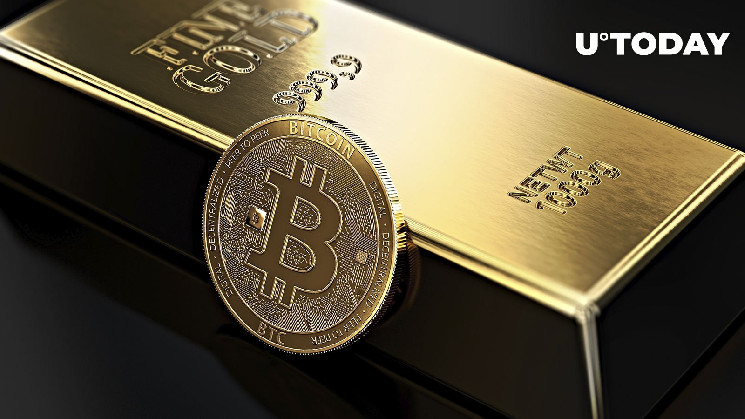[ad_1]
In a recent post, Blocksteam CEO Adam Back, a prominent figure in the cryptocurrency world, has predicted that Bitcoin could potentially surpass the $700,000 mark if it manages to capture the market capitalization of gold, which currently stands at approximately $13.5 trillion.
Back’s comment was in response to observations that Bitcoin is not only attracting significant investment flows but is also leading to a decline in gold investments.
If Bitcoin continues to draw funds away from gold, causing both assets to meet in the middle in terms of value, such a scenario could significantly elevate Bitcoin’s price.
This comes amid a backdrop of increasing interest in Bitcoin ETFs, which have been rapidly outperforming their gold counterparts in terms of investment flows.
Bitcoin stealing gold’s luster
The conversation around Bitcoin’s potential to eclipse gold has been fueled by the remarkable performance of Bitcoin ETFs.
Recent data shows that the net cumulative flows for the top ten Bitcoin ETFs, including notable ones like GBTC, have doubled in the past three days, reaching over $3 billion.
This growth rate is starkly contrasted with the nearly two years it took for gold ETFs to achieve a similar milestone.
Eric Balchunas of Bloomberg recently called attention to this trend, noting a seismic shift in investment preferences from traditional precious metals to digital currencies. Bitcoin ETFs, like IBIT and FBTC, are gaining traction among investors, ranking impressively among the top ETFs for year-to-date flows, a sign of widening support for cryptocurrency as an investment vehicle.
Bitcoin to become largest ETF commodity?
Back has previously predicted that Bitcoin ETFs will soon outshine gold ETFs, becoming the top commodity ETF. With Bitcoin ETFs already surpassing the $27.5 billion mark, overtaking silver ETFs and approaching the $90 billion held by gold ETFs, the digital currency is on a clear path to rewriting the investment landscape.
The launch of Bitcoin ETFs marked a significant shift, similar to the introduction of gold and silver ETFs in the early 2000s, by providing easier access to commodities without the need for physical handling.
[ad_2]

